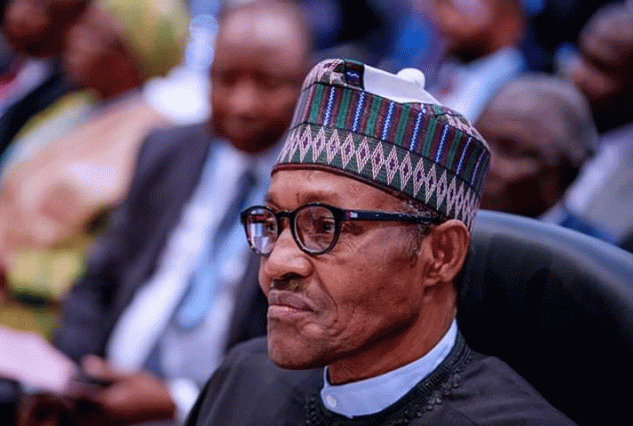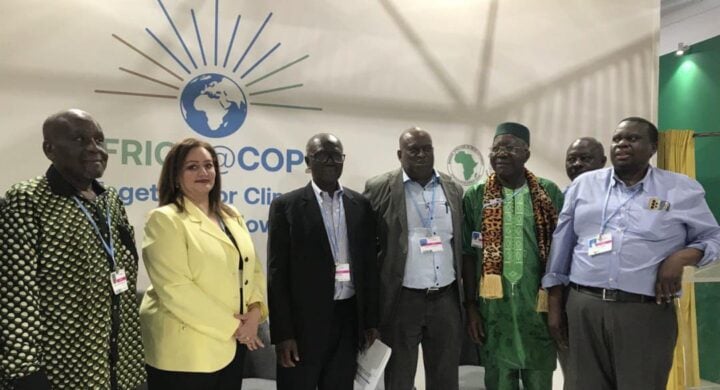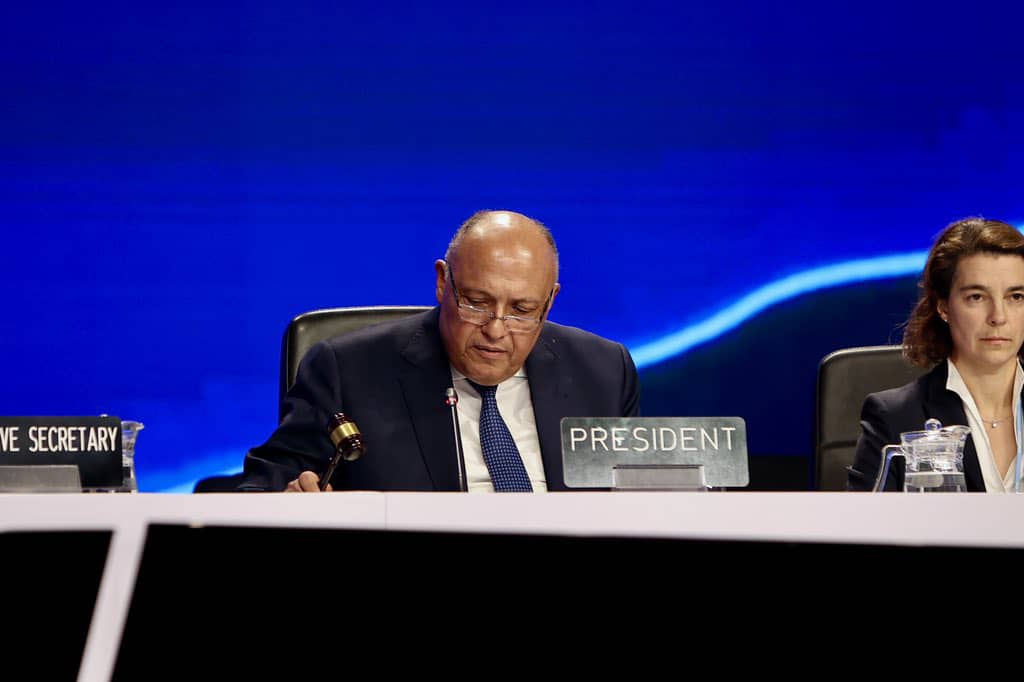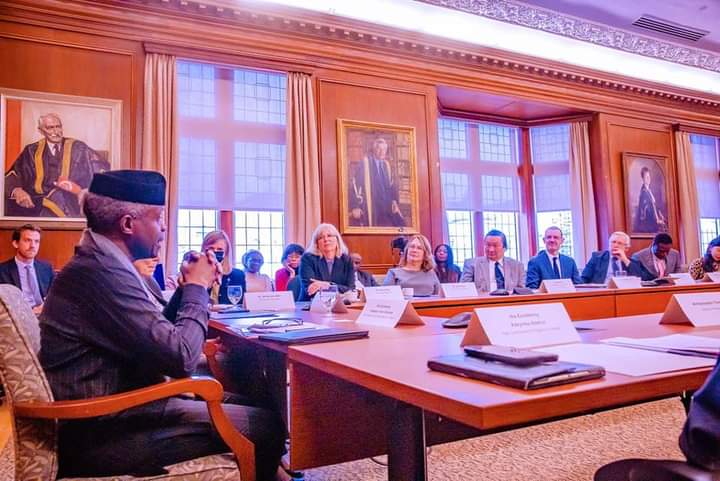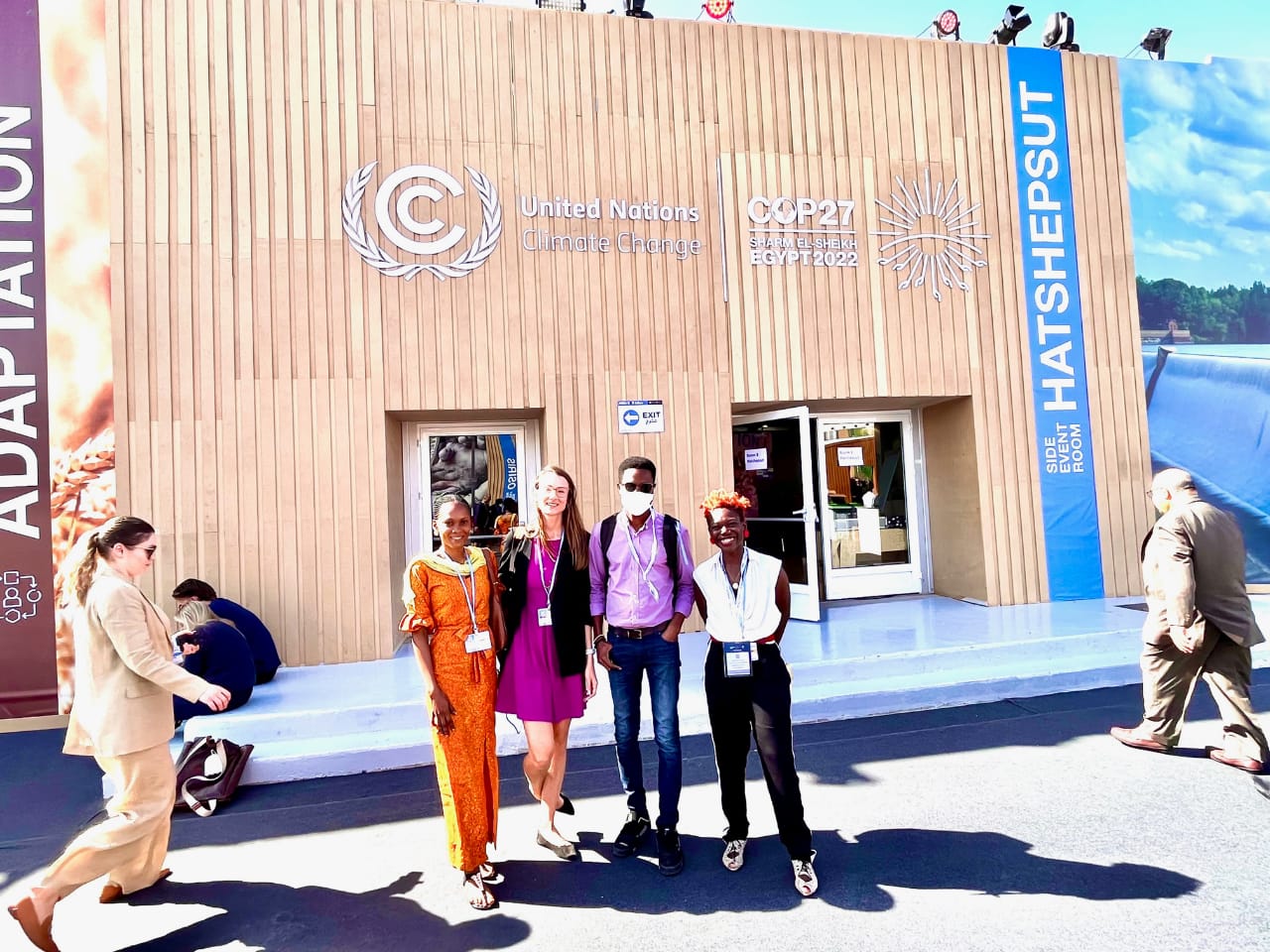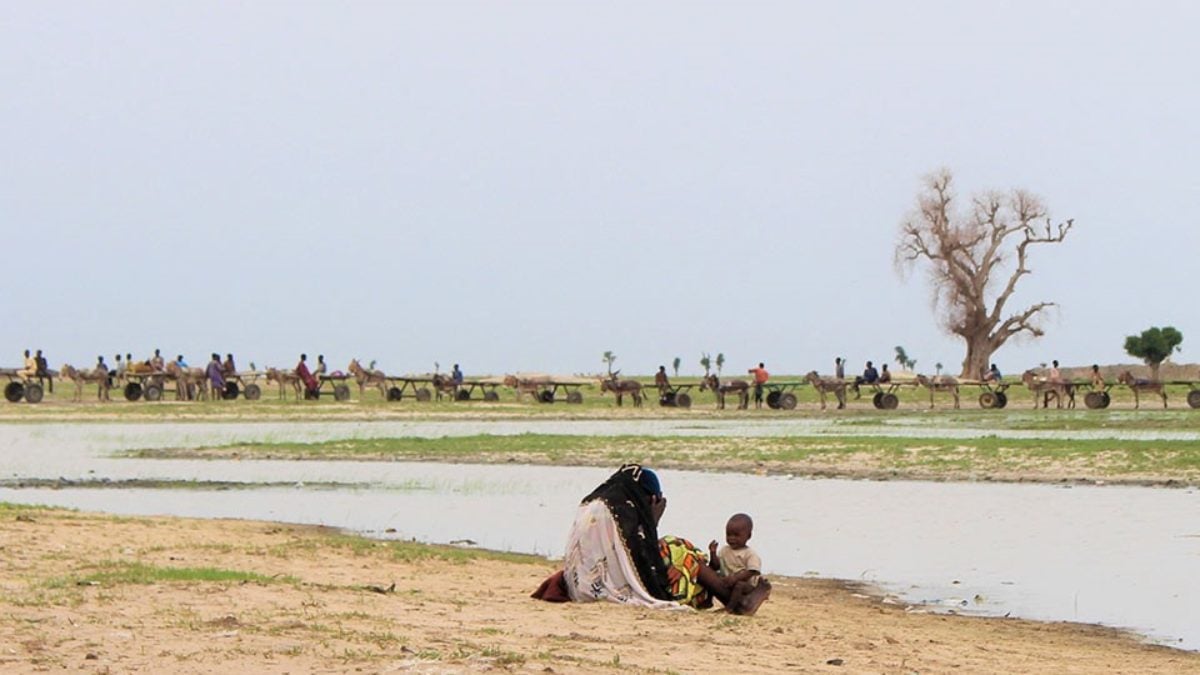President Muhammadu Buhari says developed countries must not ignore the call to create a loss and damage finance facility.
He said this on Tuesday at a high-level segment at the 27th edition of the UN climate change conference (COP27).
Loss and damage is used to describe climate change impacts beyond what people can adapt to.
Developing countries have been demanding compensation from developed nations for the damages caused by climate impacts.
Advertisement
The demand is premised on the argument that developing nations are the worst hit by the global effect of climate impacts.
However, despite making it into the agenda at the opening plenary of COP27, developed countries seem to pay little attention to the establishment of a finance facility for loss and damage.
Buhari, who was represented by Mohammed Abdullahi, minister of environment, said the developed world must not ignore this important call. He added that a loss and damage facility will help developing nations recover from the adverse effects of climate change.
Advertisement
“Mr President, on behalf of the Nigeria Delegation, I congratulate you on your election as the President of the 27th Session of the Conference of Parties to the United Nations Framework Convention on Climate Change and assure you of our full support as you lead our deliberations,” he said.
“At COP26, I did say that for Nigeria, climate change is not about the perils of tomorrow but what is happening today. Today, Nigeria is currently grappling with devastating effects of terrible flooding which has affected 3.2 million persons, over 600 lives lost, over 100,000 persons displaced and over 300 hectares of farmlands destroyed. Nigeria and indeed the rest of Africa, from the Sahara to the Cape, is living with increasing fear of food insecurity as a result of the floods.
“The economic cost for Loss and Damage for Africa is estimated at almost USD 2 Trillion excluding non-economic losses. Developed nations must not ignore the demand from developing nations to establish a Loss and Damage finance facility to help developing nations recover from the adverse effects of climate change, particularly the devastating floods, worsening desertification, and rising sea levels.
“At COP26 in Glasgow, I announced Nigeria’s commitment to net-zero by 2060 on the basis of a detailed Energy Transition Plan (ETP). This plan, the first of its kind in Africa highlights the significant scale of resources required to attain both development and climate ambitions by 2060. However, the public finance urgently needed to fund energy transitions and climate action is lacking – a situation compounded by debt distress affecting many low- and middle-income countries.
Advertisement
“We are therefore taking bold steps to pioneer innovative climate finance instruments such as debt for climate swaps; and championing the development of the African carbon market initiative. In support of this, Nigeria has enacted the climate change law alongside the initial governance framework and launched the Nigeria Emission Trading Scheme (ETS).”
Speaking on Nigeria’s achievements since after COP26, Buhari said Nigeria has created enabling policies to advance projects such as renewable solar, independent power plants (IPPs) and renewable energy (DRE).
He asked the developed countries to include Nigeria in the G7’s climate partnerships list, in order to collaborate in advancing energy transition in the country.
“To signal investment readiness, we have made significant progress in creating the enabling policies and incentives to advance a shortlist of priority projects, including Renewable Solar Independent Power Plants (IPPs), scaled Decentralized.
Advertisement
“Renewable Energy (DRE) projects and gas flare commercialization opportunities, to name a few. We are hopeful that investors at the global community will recognize the immense investment opportunities and potential for impact.
“Mr. President, as the largest economy in Africa, we are engaging the G7 to request the inclusion of Nigeria in the G7’s Climate Partnerships List for the co-creation of a Just Energy Transition Partnership. Nigeria and the rest of Africa, call for an effective and sustainable framework that will address the socio-economic effects of energy transition including energy poverty, loss of jobs and livelihoods.
Advertisement
“Africa contributes about 3 percent to the global emissions but is left to cope with the devastating impacts of climate change. Nigeria has spearheaded initiatives aimed at recovering degraded land for the Sahara and the Sahel such as the Great Green Wall. There is a dire need to expand existing adaptation acceleration programmes for developing countries.”
Meanwhile, in a recent opinion by Buhari, published in Washington Post, he said a majority of the effects of climate change in Africa are from western nations, adding that many African leaders “are frustrated by western hypocrisy” and the unwillingness to take responsibility.
Advertisement
Add a comment
